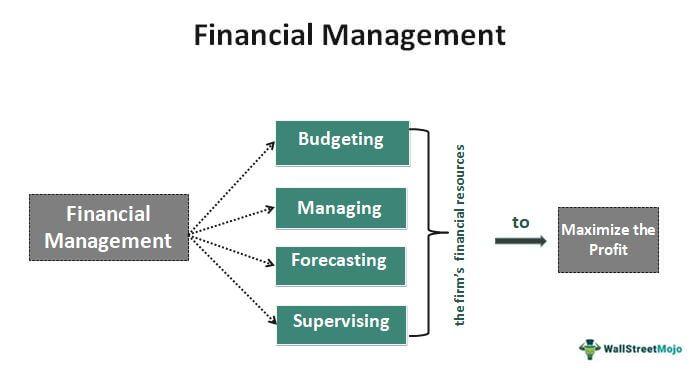In today’s fast-paced society, the constant management of finances can serve as a significant source of stress for individuals. From monitoring expenses to ensuring bills are paid on time, the complexities of financial management can take a toll on mental well-being. However, with the advent of innovative financial tracking apps, individuals now have access to tools that can revolutionize the way they approach their finances and ultimately improve their mental health. In this article, we delve into the impact of financial tracking apps on mental well-being, exploring how these technologies are reshaping the way individuals manage their financial lives and alleviate the burden of financial stress.

Importance of Financial Tracking Apps in Promoting Mental Well-being
Financial tracking apps are becoming increasingly popular for helping individuals manage their money effectively. These apps have a significant impact on mental well-being by providing users with a clear picture of their financial situation. By tracking expenses and income, individuals can better understand their spending habits, identify areas where they can save money, and set realistic financial goals.
Furthermore, financial tracking apps can help reduce stress and anxiety related to money management. By having a concrete plan in place and being able to monitor their progress, users can feel more in control of their finances. This sense of control can lead to improved mental well-being and overall peace of mind.

Exploring the Relationship Between Financial Management and Mental Health
Financial tracking apps have become increasingly popular in recent years, with many individuals utilizing these tools to monitor their spending, set budgets, and track their financial goals. While the primary focus of these apps is to help users manage their money more effectively, the impact of such tools on mental well-being cannot be overlooked. Through consistent monitoring and evaluation of financial habits, users can develop a greater sense of control over their finances, leading to reduced stress and anxiety related to money management.
Furthermore, the convenience and accessibility of financial tracking apps allow users to gain insight into their spending patterns and identify areas where they can make improvements. This increased awareness can lead to better financial decision-making and ultimately contribute to a sense of empowerment and confidence in one’s financial capabilities. By leveraging the benefits of these apps, individuals can take proactive steps towards enhancing their financial health and overall well-being.

Practical Tips for Using Financial Tracking Apps to Improve Mental Well-being
One effective way to boost your mental well-being is by utilizing financial tracking apps to manage your finances efficiently. These apps can help reduce stress and anxiety related to money management by providing you with a clear overview of your expenses and income. To make the most out of these apps, consider the following practical tips:
-
- Set specific financial goals: Outline your financial objectives, such as saving for a vacation or paying off debt, and use the app to track your progress towards these goals.
-
- Regularly review your spending: Take time to analyze your expenses and identify areas where you can cut back or make adjustments to stay within your budget.
-
- Utilize budgeting features: Make use of the budgeting tools within the app to set spending limits for different categories and track your expenses accordingly.
| Tip | Benefit |
|---|---|
| Set specific goals | Stay motivated and focused on achieving financial milestones. |
| Review spending | Identify areas for improvement and save money in the long run. |
Implementing a Comprehensive Strategy for Financial and Mental Health Integration
Financial tracking apps play a crucial role in helping individuals manage their money effectively. By using these apps, users can easily track their expenses, set budget goals, and monitor their financial health. This level of transparency and control over their finances can alleviate stress and anxiety related to money management, ultimately improving their mental well-being.
Moreover, having a comprehensive financial strategy that includes the use of tracking apps can also help individuals identify potential financial issues early on and take proactive steps to address them. This can prevent financial crises and reduce the mental burden associated with financial uncertainty. Overall, integrating financial and mental health through the use of tracking apps can lead to a more secure and stable financial future.
Q&A
Q: What are financial tracking apps and how do they work?
A: Financial tracking apps are software applications designed to help individuals manage their finances by tracking income, expenses, and savings. These apps typically link to bank accounts and credit cards to automatically categorize transactions and provide users with a clear picture of their financial health.
Q: How do financial tracking apps impact mental well-being?
A: Financial tracking apps can have a positive impact on mental well-being by reducing financial stress and anxiety. By providing users with real-time insights into their finances, these apps can help individuals budget effectively, set financial goals, and track their progress. This sense of control and awareness can lead to increased feelings of security and confidence.
Q: Are there any potential drawbacks to using financial tracking apps?
A: While financial tracking apps can be beneficial, there are potential drawbacks to consider. Some individuals may feel overwhelmed by constantly monitoring their finances, leading to increased stress and obsession over money. Additionally, reliance on technology for financial management can pose privacy and security risks if personal information is not properly safeguarded.
Q: How can individuals maximize the benefits of using financial tracking apps?
A: To maximize the benefits of using financial tracking apps, individuals should set clear financial goals, regularly review their spending habits, and make adjustments as needed. It is also important to choose a reputable app that prioritizes data security and privacy, and to maintain a healthy balance between tracking finances and other aspects of life to avoid becoming consumed by financial worries.
Key Takeaways
In conclusion, the widespread use of financial tracking apps has shown promising results in improving individuals’ mental well-being by promoting financial awareness, reducing stress related to money management, and facilitating better financial decision-making. As technology continues to play a crucial role in our daily lives, harnessing the power of these tools can lead to a more secure and balanced financial future. It is important for individuals to remain vigilant in selecting a suitable app that aligns with their needs and goals, in order to maximize the benefits for their mental well-being. As research in this area continues to evolve, it is evident that financial tracking apps have the potential to positively impact overall mental health and financial stability.


[…] How can health apps help us save money on healthcare costs? A: Health apps can help users track and manage their health conditions, […]